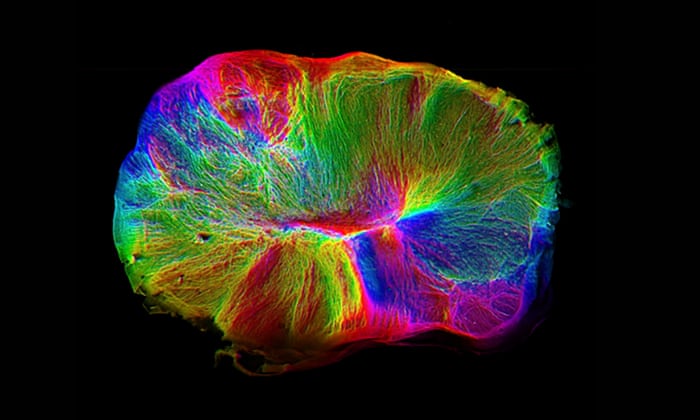In a recent article on The Guardian, Cambridge researchers developed an experiment with hopes to advance the study of motor neuron disease. The experiment involved the use of a spinal cord with attached muscle tissue from a mouse, which was then connected and linked to a small blob of human brain cells. The muscles were observed to visibly contract by control of the brain organoid. This occurred when the brain cells automatically sent out neuronal connections with the attached spinal cord and then sent out electrical impulses; the resulting observation was twitching muscles. As of now, the structure is too small to completely analyze, but it replicates the human fetal brain at approximately 12-16 weeks of pregnancy. At this stage, the brain is also too small for the development of thoughts, feelings, and consciousness. Overall, the researchers continue to grow the miniature brain in the laboratory with the goal of studying the human brain and nervous system development. They hope to gain information to help understand why motor neuron diseases take place in humans, including epilepsy and schizophrenia.
I found this article to be extremely interesting not only because of the experiment itself but also what the researchers plan to use the results for. I find it truly amazing that we have the technology and methods to physically grow a brain in a laboratory. I also hope that the experimental results can provide information behind motor neuron diseases or at least draw attention to create more studies.

No comments:
Post a Comment